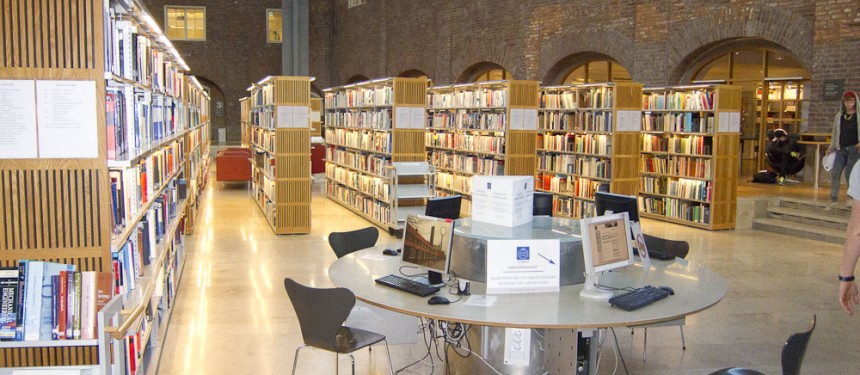To charge or not to charge international students? This has been a recurring question for European countries over the last decade. Many are working out how to pay the increasing costs of higher education and compete effectively in a global market.
News and business analysis for Professionals in International Education
Have some pie!
How is Sweden recruiting internationally?
 Sweden offers high quality facilities such as KTH Royal Institute, Stockholm
Sweden offers high quality facilities such as KTH Royal Institute, Stockholm Most on the continent now have some kind of fees structure, ranging from the minimal in Germany at around £509 per year, to maximal in the UK at about £10,000. Perhaps the most telling sign of things to come is that countries such as Denmark and Finland have broken with egalitarian tradition in the last few years by levying those from outside the EU.
Continuing this pattern is Sweden, which started charging non-EU students this autumn to help its HE system compete with its European counterparts on equal terms, and to become more attractive abroad. The move was a bold show of confidence in Swedish HE, which observers say free tuition had tarnished by perpetuating a economical rather than high quality image.
However, it was clumsily implemented. Not only are the new fees among the highest in Europe, ranging from 80,000-140,000 SEK per year (£7,500–£13,200), but they also come with one of the most expensiv,e application fees in the world – a non-refundable 900 SEK (£85). Universities were also only told about the fees in October last year, giving them little time to prepare.
As a result, international recruitment plummeted from 8,000 in 2009-10 (about 6% of tertiary enrolments) to 1,400 – a fall of 60%. This was a heavy blow for universities which have filled their master’s programmes with international students for years. “Our campus is 25%, or 30% even, international students. This is a dramatic thing for us,” says Per Bergland, the Vice Dean of KTH, Royal Institute for Technology in Stockholm, one of Sweden’s leading research-focused universities. The university saw international numbers fall from 4,000 to 3,000 and has been forced to merge its international master’s programmes with the final years of its undergraduate courses.
“With this kind of money, maybe I would go to the United States”
However, Berglund, like many, sees that losses may be a necessary price to pay for a more competitive sector. “We are supposed to compete with quality and we will compete with quality. But it will take some time for people to realise this.”
The same applies at Sweden’s oldest university, Uppsala. Gabriella Hernqvist, International Relations Officer, laments the drop in numbers which has threatened courses and the quality of research, saying, “It will probably take us years and years to get back to the figures we used to have.” However, she adds, it will be worth it in the end if quality is driven up.
“The environment is awesome… I personally feel I’ve made the right choice”
The international students that talked to the PIE News were divided over the matter. One Chinese master’s student at Karolinska Institute, a world-leading medical university in Stockholm, said she had chosen the university because of both the course and the free tuition. Asked whether she would have paid the new fees, she said: “I checked online and saw that it was quite a lot. With this kind of money maybe I would go to the United States.” For others, perks like small class sizes and generous post-study work rights made Sweden preferable to the US and UK. “The environment is awesome… I personally feel I’ve made the right choice,” said a master’s student from India at Uppsala.
Still looking? Find by category:



Did the reporter do his research? There is no Upsalla – try Uppsala! Also the Estonians claim the creation of Skype.
Well spotted. Skype was founded by Swede Niklas Zennström, who was educated at Uppsala (spelling noted!), and Dane Janus Friis. Its peer-to-peer telephone system was developed and patented by Estonian engineers. Any thoughts on the rest of the piece?
Pingback: Living costs in Sweden deter foreign students | ukpal.net